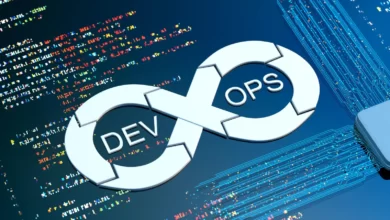Achieving Mastery: The Journey to a DevOps Certification

In the dynamic landscape of IT and software development, DevOps has emerged as a transformative force, bridging the gap between development and operations teams, fostering collaboration, and enhancing the efficiency of the software development lifecycle. With the increasing adoption of DevOps practices, a DevOps certification has become a valuable asset for professionals looking to advance their careers and contribute meaningfully to their organizations. This article delves into the significance of DevOps certifications, the journey to achieving mastery, and industry trends that underline the importance of this certification.
The Rise of DevOps: A Paradigm Shift in IT
Before delving into the journey of DevOps certification, it’s essential to understand the context in which DevOps has become a linchpin in modern IT practices. Traditionally, development and operations teams operated in silos, leading to communication gaps, slower development cycles, and increased chances of errors during deployment. DevOps emerged as a response to these challenges, emphasizing collaboration, automation, and continuous delivery.
According to the “State of DevOps” report by Puppet and CircleCI, high-performing IT organizations that adopt DevOps practices deploy 200 times more frequently, have 24 times faster recovery times, and three times lower change failure rates. These statistics underscore the transformative impact of DevOps on software development.
The Need for DevOps Certification: A Skill Validation
As organizations transition to DevOps, the demand for skilled professionals who can navigate this new landscape has surged. DevOps isn’t just a set of tools; it’s a cultural shift that requires a deep understanding of development, operations, and collaboration points. A DevOps certification serves as a formal validation of an individual’s proficiency in these areas.
Certifications like AWS Certified DevOps Engineer, Microsoft Certified: Azure DevOps Engineer Expert, and Docker Certified Associate are highly regarded in the industry. These certifications test the technical skills required for DevOps and assess an individual’s ability to apply these skills in real-world scenarios.
The Journey to DevOps Certification: A Holistic Approach
Achieving a DevOps certification isn’t just about passing an exam; it’s a journey that involves a holistic understanding of DevOps principles, practices, and tools.
- Foundational Knowledge: Start with building a strong foundation in the key concepts of DevOps, including continuous integration, continuous delivery, automation, and collaboration. Online courses, workshops, and reading materials from reputable sources can provide this foundational knowledge.
- Hands-On Experience: DevOps is a hands-on discipline. Set up your DevOps environment, experiment with different tools, and work on real-world projects. The more practical experience you have, the better you’ll understand how DevOps principles are applied in different scenarios.
- Explore Various Tools: DevOps involves many tools, from version control systems like Git to continuous integration tools like Jenkins and containerization platforms like Docker. Familiarize yourself with these tools and understand how they integrate into the DevOps pipeline.
- Collaborate and Communicate: DevOps emphasizes collaboration and communication. Engage with the DevOps community through forums, social media, and conferences. Participate in discussions, share your experiences, and learn from others.
- Continuous Learning: DevOps is a rapidly evolving field. Stay updated with the latest trends, tools, and best practices. Follow industry blogs, attend webinars, and continuously seek opportunities for professional development.
Industry Trends: The Pervasive Influence of DevOps Certifications
The demand for DevOps professionals continues to grow, and industry trends reinforce the value of DevOps certifications.
- Integration with Cloud Technologies: As organizations increasingly migrate to cloud environments, integrating DevOps practices with cloud technologies is a prevailing trend. DevOps certifications that include cloud components, such as AWS or Azure, are gaining prominence.
- Focus on Security: With the growing frequency and sophistication of cyber threats, security is a top concern for organizations. DevSecOps, an extension of DevOps that integrates security practices, is becoming integral. DevOps certifications that incorporate security aspects are in high demand.
- Containerization and Orchestration: Technologies like Docker and container orchestration tools like Kubernetes have become standard in DevOps environments. Certifications that cover these technologies are highly sought after as organizations embrace containerization for application deployment.
- Shift-Left Testing: Traditional testing approaches are being replaced by continuous testing practices integrated early in development. DevOps certifications that include a focus on testing automation and continuous testing align with this trend.
- AI and Machine Learning Integration: The integration of artificial intelligence (AI) and machine learning (ML) into DevOps processes is rising. Certifications incorporating AI and ML concepts within DevOps are becoming increasingly relevant.
Conclusion: The Continuous Evolution of DevOps Mastery
In conclusion, achieving mastery in DevOps through certification is not just a personal accomplishment; it’s a commitment to staying relevant in an industry that is continually evolving. The journey involves foundational knowledge, practical experience, collaboration, and continuous learning. Industry trends underscore the importance of DevOps certifications for individual career growth and the overall success of organizations navigating the complexities of modern software development and IT operations. As the DevOps landscape evolves, professionals with the right certifications and skills will remain at the forefront of innovation and efficiency.





